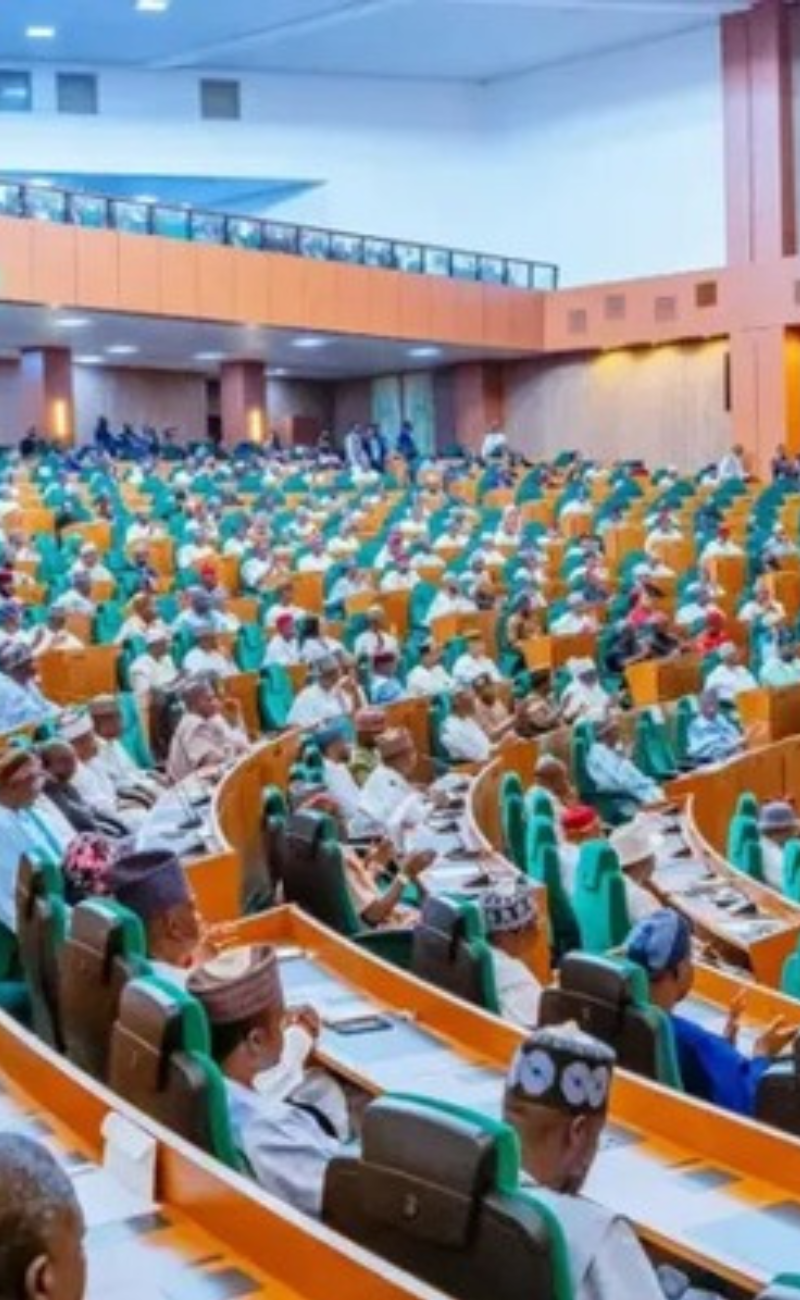The first week of plenary following the Salah and Easter break saw the introduction of three significant bills in the House of Representatives aimed at addressing youth development and empowerment in Nigeria. These bills will have a potential impact on gender equality and social inclusion (GESI).
![]()
Nigerian Youths Trust Fund (Establishment) Bill
Sponsored by Rep. Donald Ojogo (APC, Ondo) and having passed its first reading in the House of Representatives. As the name implies, the bill aims to establish a dedicated trust fund to support Nigerian youths, potentially in areas such as education, entrepreneurship, innovation, and job creation. While the full text of the bill is not yet available, its title suggests a focus on empowering young Nigerians through financial and developmental support.

Nigeria’s youth population is one of the largest globally, with a significant percentage under the age of 35. Despite their potential, many young Nigerians face systemic challenges, including unemployment, which remains a pressing issue, limiting economic growth and personal development.
Also, young entrepreneurs often struggle to secure funding due to a lack of collateral or credit history. Many youth lack access to quality education and vocational training, hindering skill development, and marginalized groups, including young women, persons with disabilities (PWDs), and rural youths, often face additional barriers to opportunities.
However, a dedicated Youth Trust Fund could address these challenges by providing targeted financial support, fostering entrepreneurship, and promoting inclusive development. The big GESI question here is: Will the Trust Fund address structural inequalities that exclude young women, persons with disabilities (PWDs), and rural youth from accessing finance and opportunities? These are the questions that need to be answered to ensure inclusivity.
Read Also: Advancing Women’s Right through Constitutional Reforms | GESI Tracker
North East Youth Skills Development and Digital Jobs (Establishment) Bill
This bill also passed its first reading and was sponsored by Rep. Jafaru Gambo Leko (APC, Bauchi) and co-sponsored by 3 others.

This bill, as the name implies, is the establishment of a specialized program focused on developing digital skills and promoting job creation among youth in the North East region of Nigeria — an area heavily impacted by over a decade of insurgency, displacement, and economic disruption.
The title indicates a clear intention: to equip young people with 21st-century digital skills and connect them with employment opportunities in the digital economy. This could be transformative in a region where traditional livelihoods have been decimated and infrastructure is still recovering.
However, while the bill comes with great promise, significant risks of exclusion must be put into consideration. Key GESI concerns include:
- Gender Inclusion: In a region where social norms often limit female participation in education and technology, will the program actively recruit and support young women, including mothers and married girls?
- Disability Access: Will persons with disabilities (PWDs) — particularly those affected by the conflict — have the necessary adaptive tools and support to participate fully in digital training and remote work?
- IDP Camp Access: Many young people still reside in internally displaced persons (IDP) camps. Will the program include mobile hubs or satellite centers to reach these populations where they are?
- Language and Literacy Barriers: Will the digital training be designed to accommodate non-English speakers or those with limited formal education?
Focused on a region deeply affected by conflict and displacement, this bill may be a step toward post-insurgency recovery through digital skills and job creation. However, inclusion must be front and center and encompassing.
Read Also: Natasha: Women Representation and Patrichial Parliaments | GESI Tracker
National Youth Agripreneurship Fund (Establishment) Bill.
Also sponsored by Rep. Jafaru Gambo Leko (APC, Bauchi) and six others, as the name implies, the bill proposes the creation of a National Youth Agripreneurship Fund, a targeted financing mechanism designed to support young Nigerians venturing into the agriculture sector.
Agriculture is crucial for an economy to thrive as it directly impacts food security, employment, and economic growth. It provides food for the population, raw materials for industries, and a significant source of income and employment, particularly in rural areas. Furthermore, it contributes to national revenue through exports and can drive rural development
However, this bill could play a catalytic role in encouraging young people to view agriculture not merely as subsistence work but as a viable and profitable business that integrates innovation, technology, value chains, and agribusiness development.
While the bill’s intention may appear promising, its impact will depend on whether it deliberately tackles the entrenched inequalities that have long excluded certain groups from the agricultural value chain. A GESI lens raises key questions such as:
- Will the fund address gender-specific barriers such as access to land ownership, credit, extension services, and farm inputs? Without deliberate safeguards, women could be sidelined yet again. How will the fund ensure fairness in how land, grants, and equipment are distributed, especially where patriarchal customs dominate?
- Will youths living with disabilities receive tailored support such as adaptive farming tools, accessible training materials, and inclusive market opportunities?
- Will marginalized groups in remote or climate-vulnerable areas be prioritized, or will structural disadvantages like poor road access, lack of documentation, or language barriers shut them out?
These are the questions that need to be answered in the design of the bill for implementation. While the bill may have the potential to rebrand agriculture for Nigeria’s youth and address pressing unemployment challenges, that will be possible only if inclusion is more than a buzzword.




